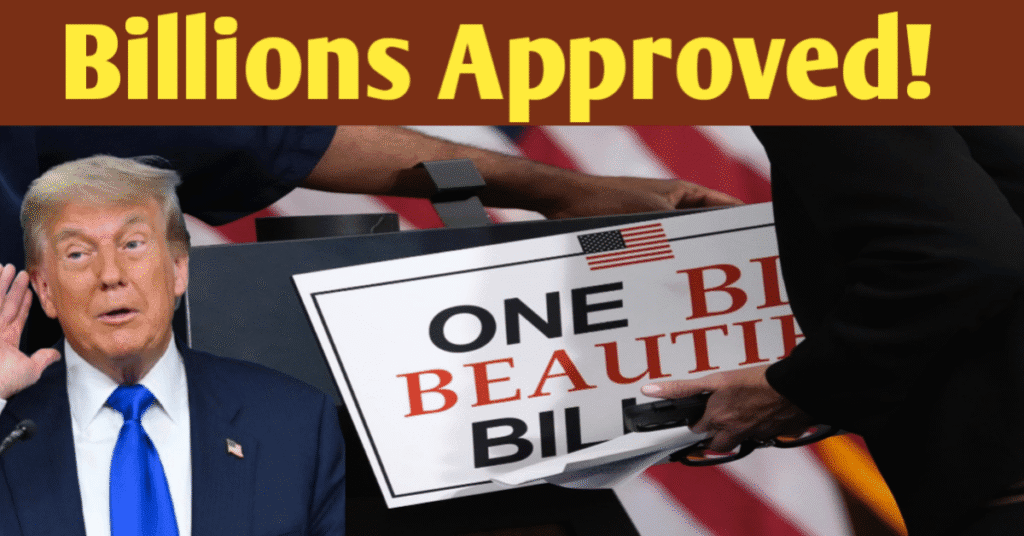What is the Big Beautiful Bill?
In recent months, the Big Beautiful Bill has become one of the most talked-about pieces of legislation in US politics. Introduced with fervor and political drama, this bill seeks to reshape critical aspects of American governance, particularly voting rights, human rights protections, and digital access in underrepresented communities.
Coined the “Big Beautiful Bill” by political insiders—and echoing familiar rhetoric from past presidential cycles—it’s as ambitious as it is controversial. While supporters tout it as a sweeping measure to revitalize American democracy, critics warn of governmental overreach and hidden political motives.
At its core, the Big Beautiful Bill promises:
Expansion of federal voting protections
Strengthened digital privacy rights
Increased transparency in campaign funding
Modernization of election technology
Federal oversight on gerrymandering practices
This bill isn’t just about legal reform—it’s about reimagining how democracy functions in the modern era.
Explore more in US Politics to understand similar legislative trends.
Key Clauses of the Bill
The Big Beautiful Bill is a multi-faceted piece of legislation, spanning more than 600 pages. Here are its key clauses:
1. Voting Rights and Access
Automatic voter registration for citizens 18+
Same-day voter registration on federal election days
Restoration of voting rights for non-violent ex-felons
Minimum federal voting standards (e.g., ballot box availability)
2. Digital Rights and Surveillance
Ban on unauthorized facial recognition in public places
Strict limitations on government surveillance without a warrant
Creation of a Federal Digital Oversight Committee
3. Campaign Finance Reform
Public disclosure of all campaign contributions over $500
Restrictions on dark money and PAC-related lobbying
Caps on corporate donations in federal races
4. Education and Civic Literacy
Federal grants to states to enhance civic education in schools
Creation of a Civic Learning Corps to train young voters
Timeline and Senate Voting Updates
The Big Beautiful Bill began as a draft discussion in mid-2024, gaining traction after the 2024 general elections when several pro-reform candidates were elected to the Senate.
| Date | Milestone |
|---|---|
| March 2025 | Bill introduced in the House by Rep. Emilia Torres (D-NY) |
| April 2025 | Passed by House with narrow margin |
| May 2025 | Senate hearings began, sparking national debate |
| June 15, 2025 | Senate voted 52-48 in favor of moving to final debate |
| June 30, 2025 | Final vote postponed after filibuster by GOP senators |
Read more in American Democracy to follow legislative progress on similar bills.
Who Supports vs Opposes It?
The Big Beautiful Bill has ignited intense debate across the political spectrum, drawing both strong support and fierce opposition
Supporters:
Democrats, citing it as necessary for restoring voter access
Civil rights organizations, including the ACLU and NAACP
Tech advocates, due to its digital privacy protections
Several education nonprofits, praising its civic literacy mandates
Opponents:
Most Republicans, calling it a “federal overreach”
Election boards in red states opposing standardization
Corporations wary of campaign finance restrictions
Some libertarians, citing concerns over centralization
Notable Names:
Former President Donald Trump labeled it the “most radical Trump bill ever proposed—but not in a good way.”
Impact on American Citizens
The real-world consequences of the Big Beautiful Bill are enormous. If passed, here’s how everyday Americans would feel the change:
Positive Outcomes:
Easier voter registration, especially for young voters
Reduced influence of big money in elections
Safer digital environments with better privacy
More transparency and accountability in government actions
Potential Drawbacks:
Increased federal spending to implement systems
State-level pushback causing legal confusion
Short-term administrative hurdles in voter systems
Expert Opinions and Reactions
We reached out to several policy experts and political analysts. Here’s what they said:
Dr. Lena Morrison, Political Science Professor, Georgetown University:
Carlos Mendez, Tech & Privacy Analyst:
“This bill could reset the balance between surveillance and privacy—but only if enforced properly.”
Amanda Liu, Education Policy Specialist:
“The civic education section is being overlooked.
Explore our Technology section for deeper analysis on the digital rights impact of the bill.
Human Rights and Democratic Implications
Human rights activists are calling the Big Beautiful Bill a landmark opportunity.
Human Rights Gains:
Equal access to vote regardless of race or income
Empowerment of marginalized groups through education and civic access
Legal protection against invasive surveillance
UN Human Rights Watch even released a statement praising the bill, urging American lawmakers to “set a global precedent for rights-based legislation.”
However, some are concerned that too much centralized control might infringe on state rights, leading to constitutional legal battles.
My Personal Thoughts
Written by Munaffy from Sarkarji.xyz
As someone closely following American legislation for years, the Big Beautiful Bill feels different. It’s not perfect—no bill ever is—but it touches on everything our readers care about:
Freedom.
Access.
Integrity.
Education.
Digital privacy.
This isn’t just about 2025. This is about whether democracy adapts or crumbles in the face of modern threats.
I believe that whether you’re red, blue, or somewhere in between, you owe it to yourself to read the bill, understand what’s at stake, and make your voice heard.
Final Conclusion and Call to Action
The Big Beautiful Bill could reshape the very soul of American democracy. From expanding voting rights to strengthening human rights laws, it’s a bold experiment that will be debated for years to come.
The question isn’t whether it’s perfect. The question is whether it moves us closer to a more just, inclusive, and transparent society.
What do YOU think about the Big Beautiful Bill?
Drop your thoughts in the comments
Share this article with friends
Subscribe to Sarkarji.xyz for daily updates on US news, politics, education & tech


